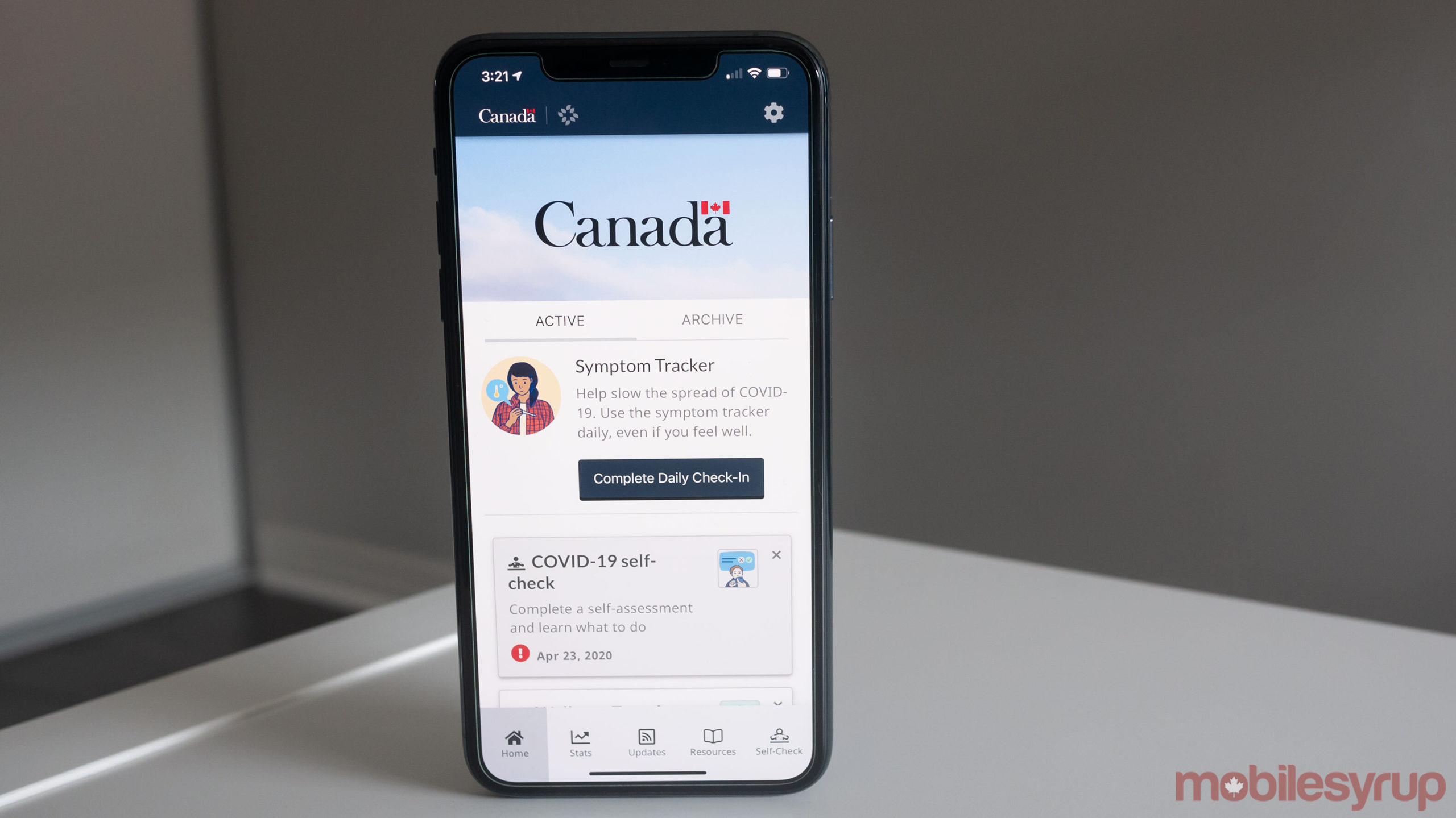
Canada is entering the early stages of assessing technological approaches for contact tracing, and experts are calling for safeguards to be implemented to protect people’s privacy.
Innovation Minister Navdeep Bains stated in a recent press conference that all options are on the table when it comes to reducing the spread of COVID-19. He said the government has engaged with some “early stage” technology projects designed to contain the virus.
Although the government has not made any final decisions on any projects or apps, Canada’s public chief health officer Dr. Theresa Tam says that that contact tracing is a key measure to contain the virus.
The office of the Privacy Commissioner of Canada says that it has had some communications with the Innovation, Science and Economic Development department and Health Canada on the topic of contact tracing apps.
In a statement sent to MobileSyrup, Commissioner Therrien stated that “during a crisis, laws can be applied flexibly and contextually, but they must still apply. Public health objectives and privacy protection can be achieved at the same time.”
The commissioner has released a framework for governments that outlines key privacy principles in addressing the pandemic in a way that respects privacy as a fundamental right.
It outlines that any technological approaches implemented must have a clear legal basis, be time-limited and science-based and considered necessary. The framework also notes that the government should be clear about the process, and that the data collected during this period should be destroyed once the crisis ends.
Assessing different models and implementing safeguards
Several countries around the world have implemented different versions of contact tracing, some more extreme than others. Singapore has launched an opt-in ‘Trace Together’ app that uses Bluetooth proximity data to mitigate further spread of the virus.
Following the introduction of an emergency law, Israel has launched a program that uses mobile phone data to track people who have the virus, in order to identify and quarantine those who have come into contact with them.
Since there are several different methods of contact tracing, it’s unknown what type of model Canada would follow if it were to implement a similar system.
Dr. Richard Lachman, an associate professor in the RTA School of Media at Ryerson University, tells MobileSyrup that Canada needs to determine what its model would look like.
“We need to have a serious conversation about which version of contact tracing we’re going to implement, what rights we are going to have to temporarily suspend in terms of public health, and for how long,” he stated.
“Any decision we make should be limited in time and limited in scope to only deal with today,” Lachman noted, echoing the time-limited model described in the framework laid out by the privacy commissioner.
Further, if Canada does implement a technological approach, Lachman outlines that there should be safeguards set in place to ensure that the technology and data isn’t being used for any other purpose.
Additional safeguards should be put in place to ensure that vulnerable populations are protected, according to Lachman. For instance, someone who is a recent immigrant or an activist and needs to protect their identity, may not want to share their location data.
He notes that “privacy, and infringement on privacy, doesn’t affect everybody equally,” and that measures should be taken to protect each segment of the Canadian population.
Lachman also outlines that contact tracing through technology is not a magic bullet solution for containing the virus, and that there are some limitations. For instance, if the government launches a system that only a small percentage of people download, its effectiveness is limited.
Some people are more tech-savvy than others, which could impact adoption rates of technological measures. Lachman notes that a Canadian method likely wouldn’t be similar to Singapore’s model since the country’s population is more technologically sophisticated.
Further, Bianca Wylie, the co-founder of Digital Public and a senior fellow at the Centre for International Governance Innovation, tells MobileSyrup that releasing contact tracing apps without adequate testing capacity would lead to limited effectiveness.
Since testing is somewhat limited in Canada, there’s the question of how effective contact tracing would be if people are unable to get a test once they are notified that they have come into contact with an infected individual.
Wylie notes that Canadians also need to have a conversation about the type of future we want to have, and how much we want to “tie issues such as freedom and our right to movement to the technology we use.”
“The last few years suggest that we’ll see an increase in natural and health emergencies, not less of them, and we have to ask ourselves if this is the kind of power we want governments to have, not only now, but every time something like this happens,” she stated.
As the government continues to assess possible technological approaches, we may see some measures being implemented in the next few weeks. What exactly these measures may look like remains unknown for the time being.
MobileSyrup may earn a commission from purchases made via our links, which helps fund the journalism we provide free on our website. These links do not influence our editorial content. Support us here.


